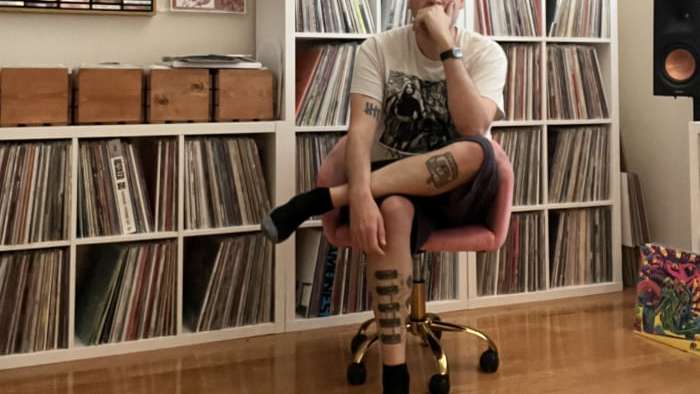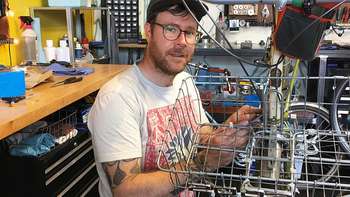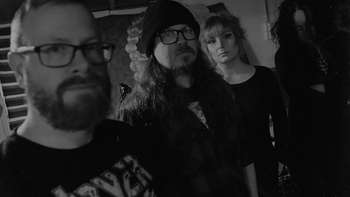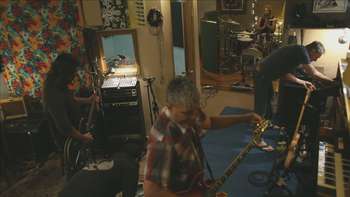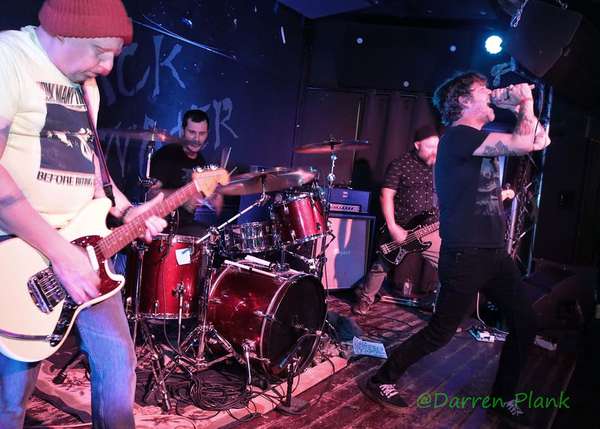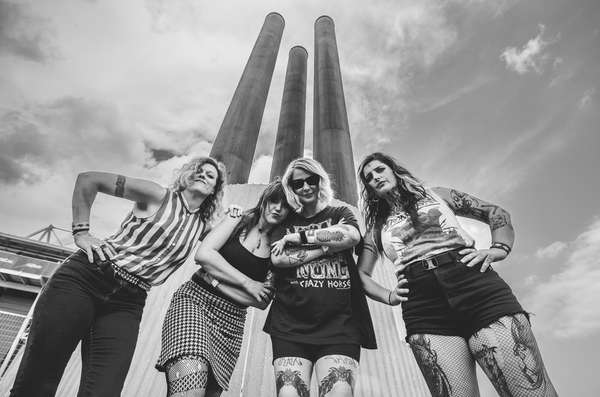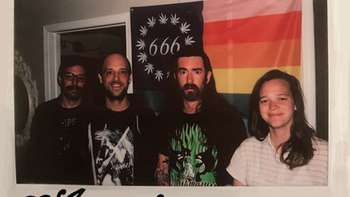There are a lot of misconceptions about the life of a musician. Most musicians have day jobs – and not just to pay the bills. Jobs provide new challenges, personal fulfillment and, yes, some rent or gas money. And usually when somebody is writing a new record or scheduling a tour, they have to balance that with their job.
How an artist spends their time by day will influence the creative process at night. In Don’t Quit Your Day Job, Scene Point Blank looks at how musicians split their time, and how their careers influence their music or – sometimes – how their music provides escape.
In this edition, we chat with Chris Mason, who advocates for at risk youth by day, as well as playing guitar in Low Culture and running Dirt Cult Records about following your passion and beliefs, be in through music or work.
Scene Point Blank: What do you do for a living? What is your official job title?
Chris: I'm the co-director of an organization that supports the implementation of an evidence-based therapy model throughout the western states. The goal of the program that I work for is to ensure that kids who are at risk for incarceration or some other institutional placement are able to remain in their homes and their communities. I used to do direct client service work but my role now is really coaching and training therapists and supervisors as well as doing a lot of advocacy on the state level.
Scene Point Blank: When did you decide on this career path? Did that happen before or after you were a musician? (In other words, give us a look at your timeline of education and career vs. being a musician.)
Chris: I think getting into punk in my teens certainly shaped my career path. But in terms of my adult life, my career and music have always just kind of coexisted. I mean, I went on a month-long tour the week after I got my master's degree. Prior to that, I'd rush out of my classes hoping to get to a show or practice on time. In my 20s and most of my 30s, all of my vacation days were used on tours. I never really hoped that music would be a full-time thing. My ambitions were to release records, play house shows, and meet cool people.
"My ambitions were to release records, play house shows, and meet cool people."
Scene Point Blank: You work with a lot of kids in difficult positions. How did COVID affect them?
Chris: Covid impacted everyone, but the impacts were different for every person. For some kids, the fact that they weren't in school kinda naturally removed them from their negative peer groups and they did pretty well. For others, the fact that they weren't going to school in person really impacted their participation in school. For some families, Covid restrictions meant more quality time together and ultimately strengthened their relationships -- for others, it increased conflict. So many of the families the programs I support work with struggled to meet basic needs. The amount of support available was also extremely limited. Getting kids involved in pro-social activities was a near impossibility. The list could go on and on.
Scene Point Blank: How did COVID affect your own work (and work/life balance)?
Chris: Most of the work I do -- aside from occasionally traveling -- is already remote, so my work circumstances didn't change too drastically. What did change was that we had to all of the sudden take a model that was designed to support kids and families in their homes and communities and figure out how to provide support via Telehealth. It was a lot of work.
As far as a work-life balance, because I work from home, band practice and shows were kind of my window into the outside work and all of that went away. It was probably more difficult to disengage from work completely as a result. I took a lot of walks.
Scene Point Blank: I imagine you travel a lot for work. What’s the biggest challenge in balancing your career with your music?
Chris: For work, I book most of my travel about a year out and try to spread trips out as much as possible. There are certainly times when a band has been offered a really cool show and I haven't been able to do it because of my travel schedule, but it's not too impactful. I'm heading to the midwest this weekend to play some shows and it's the first trip like this I've taken in two and a half years. When I'm traveling a lot for work, I feel a bit more guilty about these trips because I'm spending more time away from my family -- but I try to never feel guilty about taking time away from work.
As for the label, I'm at a bit of an advantage because I work from home. I can pack records or respond to emails during my downtime. My travel is usually short enough that it only delays things going out a few days.
Scene Point Blank: Do you ever talk about music with your employer or coworkers? Do others have similar tastes as you?
Chris: I used to avoid this. When I'd take time off to tour, I'd be really vague about where I'm going. Now I'm a bit more open about it. Everyone I work with knows I'm in a band. Some know I run a record label. I've shared Bandcamp links with people who are truly interested.
I did get the Bad Religion book for a white elephant gift at Xmas and guessed it was my supervisor who got it for me. She told me she was a big fan when she was younger. But I don't work with any punks per se.
Scene Point Blank: How about the kids you work with? Do you talk about music with them?
Chris: I don't do direct client work anymore, but music came up from time to time when I did. The weirdest experience was working on a psych unit and one of the kids being like "I've seen your band." This was back before I told anyone I was in a band, so it was anxiety-inducing. Haha. I worked with a big Avenged Sevenfold fan once, and I told her I liked them when they were on Hopeless Records but wasn't a huge fan of their major label stuff (this was a white lie; I don't like any of it) and she was like, "How do you know all that?!?" I won a little credibility with her. I also loaned a drum machine to a kid I worked with who wanted to make beats while he was on house arrest. I've got a lot of little antidotes like that.
Scene Point Blank: Have your experiences from making music or touring influenced your day job in any surprising ways?
Chris: Hmmm, well, staying in punk houses certainly made going into clients' homes that weren't exactly "clean" and neighborhoods that were deemed "dangerous" much easier for me than some of my colleagues. No couch is ever going to be as bad as the couch I slept on in the Lost Cross House. Lol. I also think that traveling in punk bands has provided me an opportunity to meet so many different people from so many walks of life and has impacted my ability to interact with a range of people in a strength-focused and affirming way.
Scene Point Blank: Does the job affect how or when you write, play live shows, practice or tour? How so?
Chris: Like I said before, there are shows I've had to miss out on due to work travel. I also can't take off months at a time to tour -- not that I'd want to. At my age, I much prefer shorter bursts. In terms of writing, I'm not sure how much of an impact my work has on the subjects I tend to write about. I could probably draw a more direct line when I was younger. For instance, when I was working at an acute psych hospital, many of my songs were about sadness and death. Looking back, that was largely a function of working day in and day out with people who were in the midst of mental health crises.
Scene Point Blank: What advice would you give to others who might be interested in your field?
Chris: I wish I knew. I feel like a lot of what I'm doing was largely the result of stumbling into things that aligned with my worldview and that worked for kids and families.
--
Check out previous entries in the Don’t Quit Your Day Job series.
